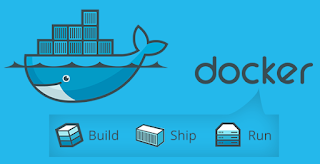Docker is an open source container based software framework that automates the deployment of applications inside a software contains by providing an additional abstraction layer and automation of operating system level virtualization on Linux. Docker uses resource isolation features of the Linux kernel such as cgroups and kernel namespaces to allow independent "containers" to run within a single Linux instance, avoiding the overhead of starting and maintaining virtual machines.
How to Install:
Open Ubuntu Terminal Window and login as a root. Follow the below steps.
ln -sf /usr/bin/docker.io /usr/local/bin/dockerHow to Install:
Open Ubuntu Terminal Window and login as a root. Follow the below steps.
- Ensure all the packages are up to date.
- Now install Docker by installing the docker-io package.
- Link the path
- Fix the path settings.
- Optionally we can configure Docker to run when the server boots up.
- Then we can start docker service
- Now download the docker container.
- To set up a Ubuntu container with a bash shell
- To disconnect, or detach, from the shell without exiting use the escape sequence Ctrl-p + Ctrl-q.
- To test whether docker is installed correctly. Just run the below command.


Comments
Post a Comment